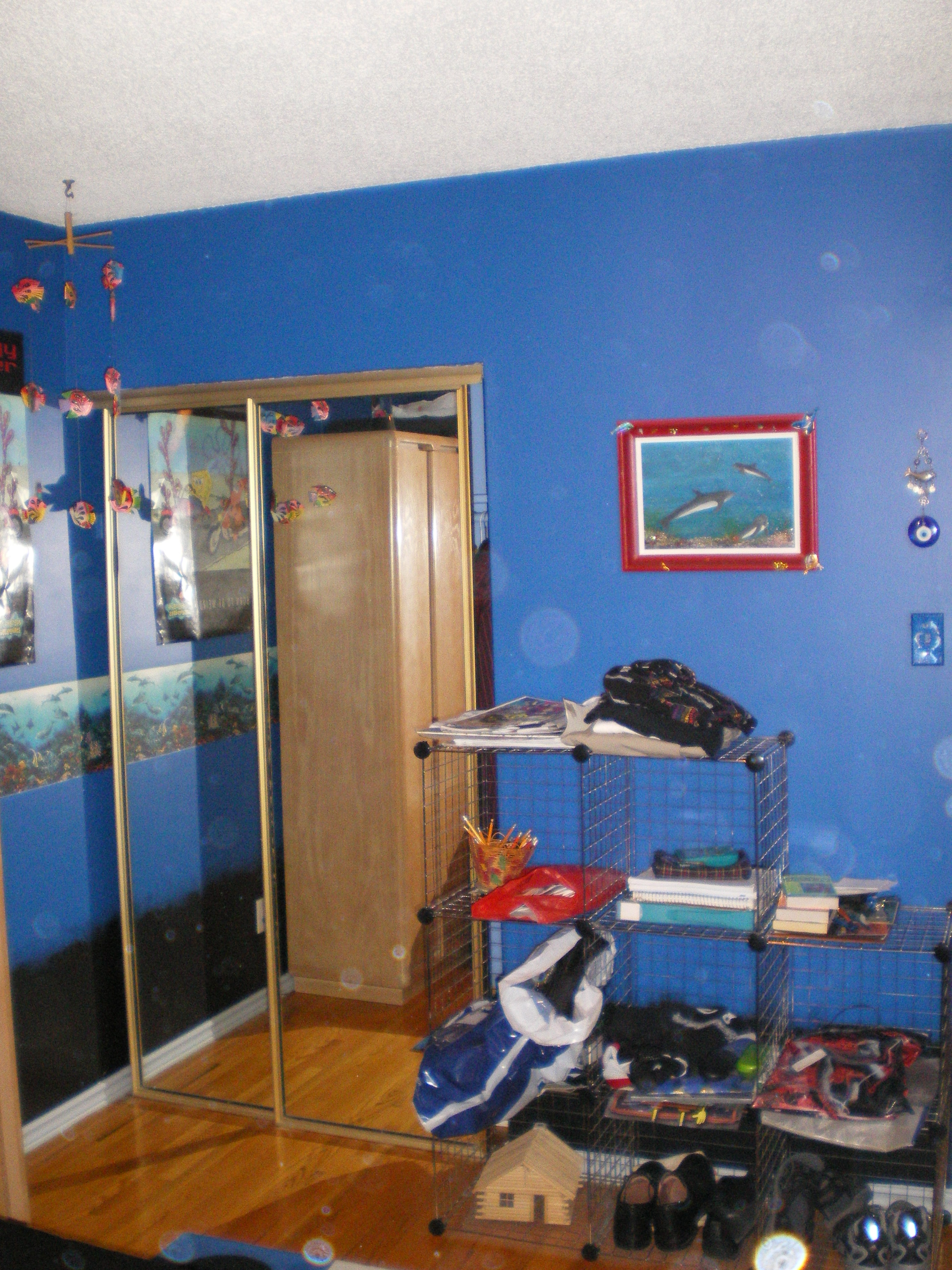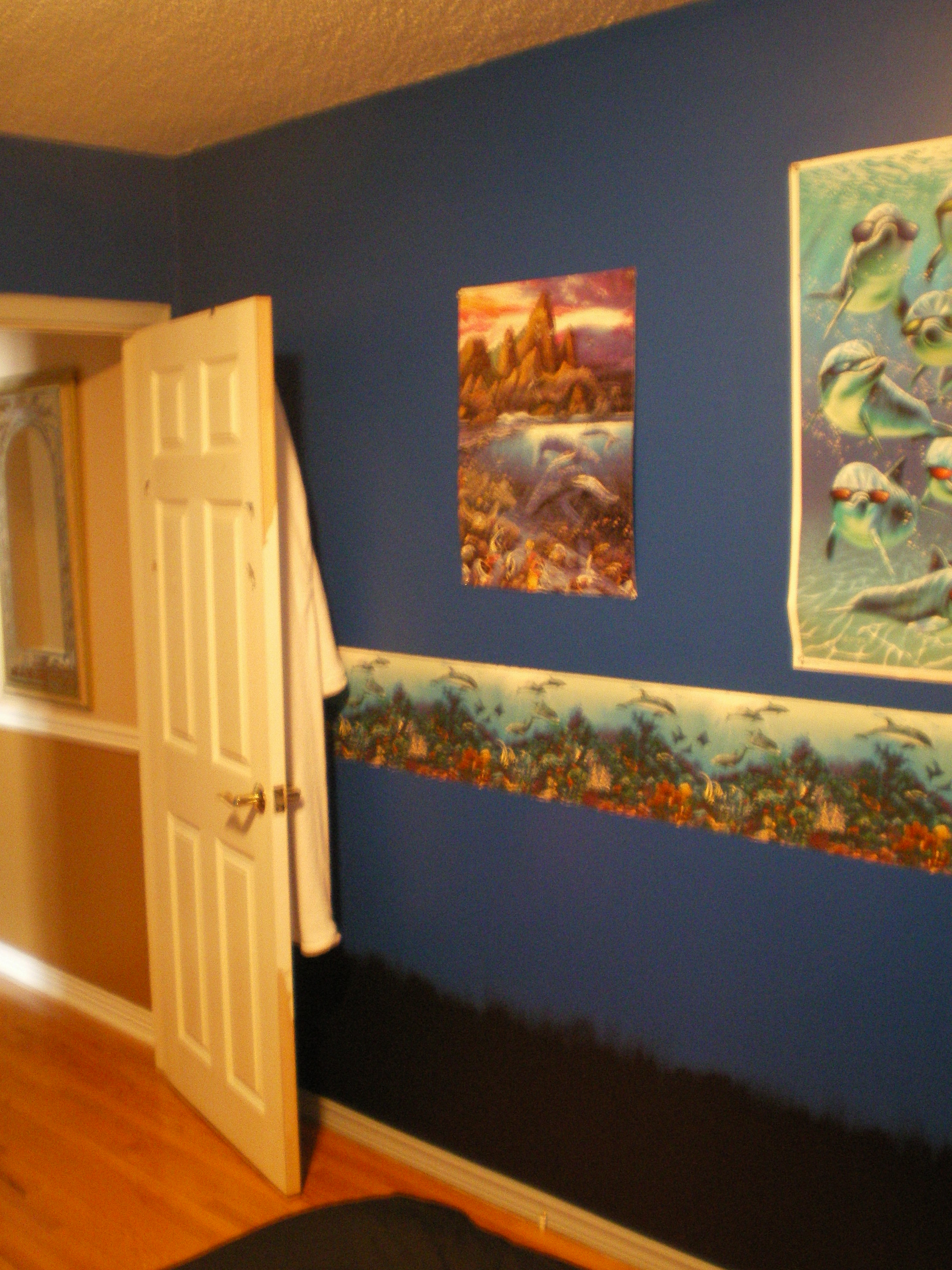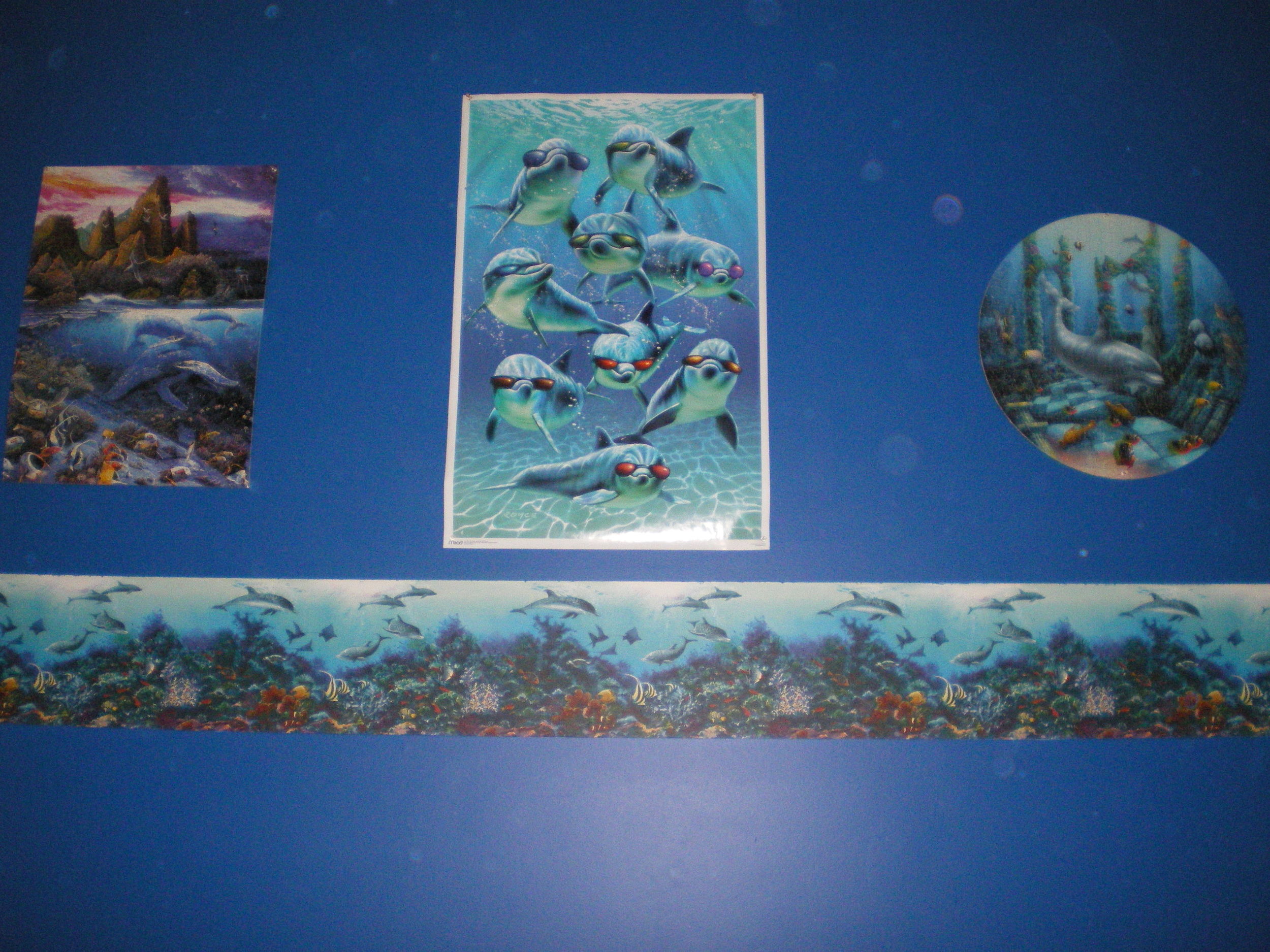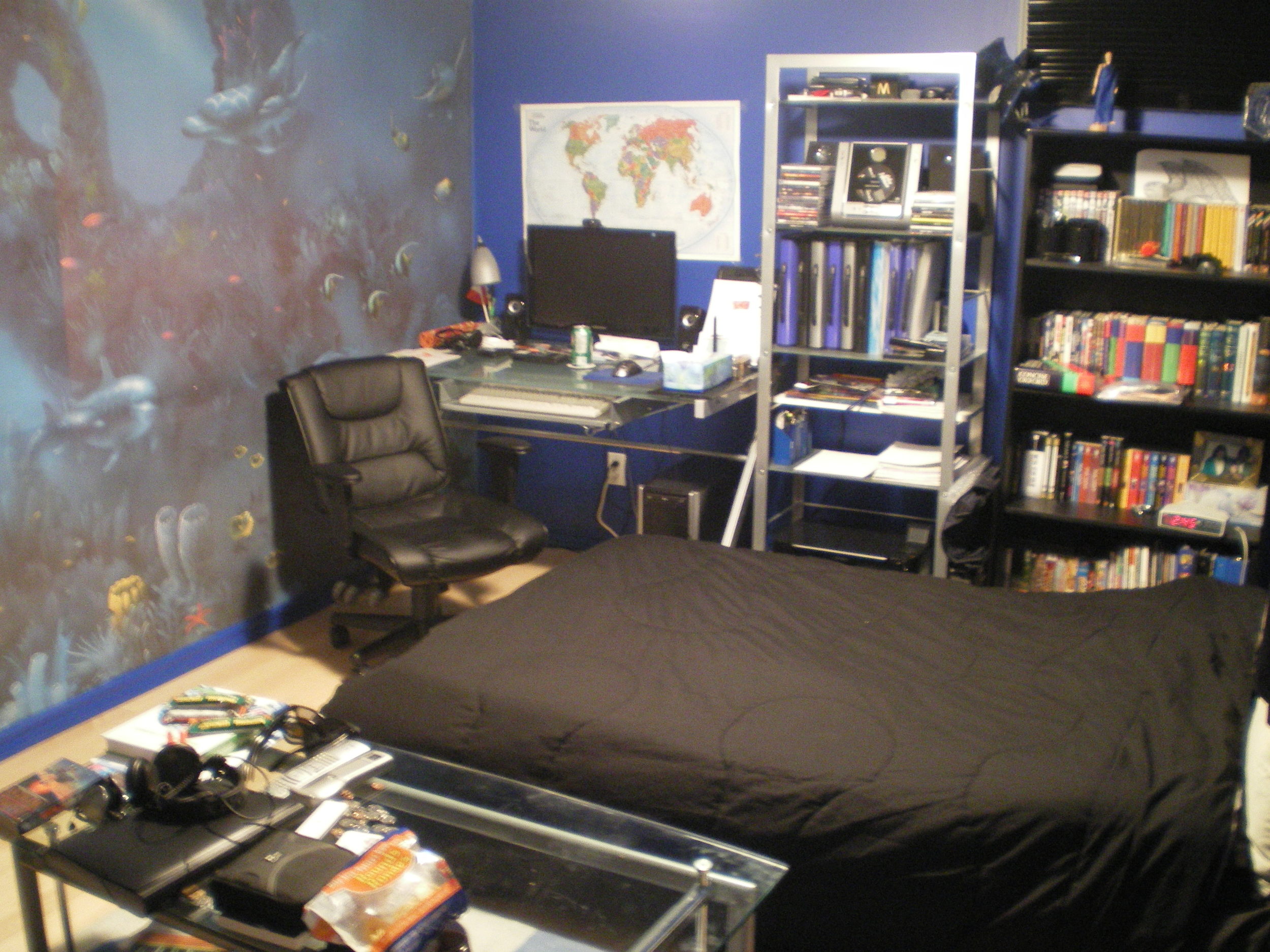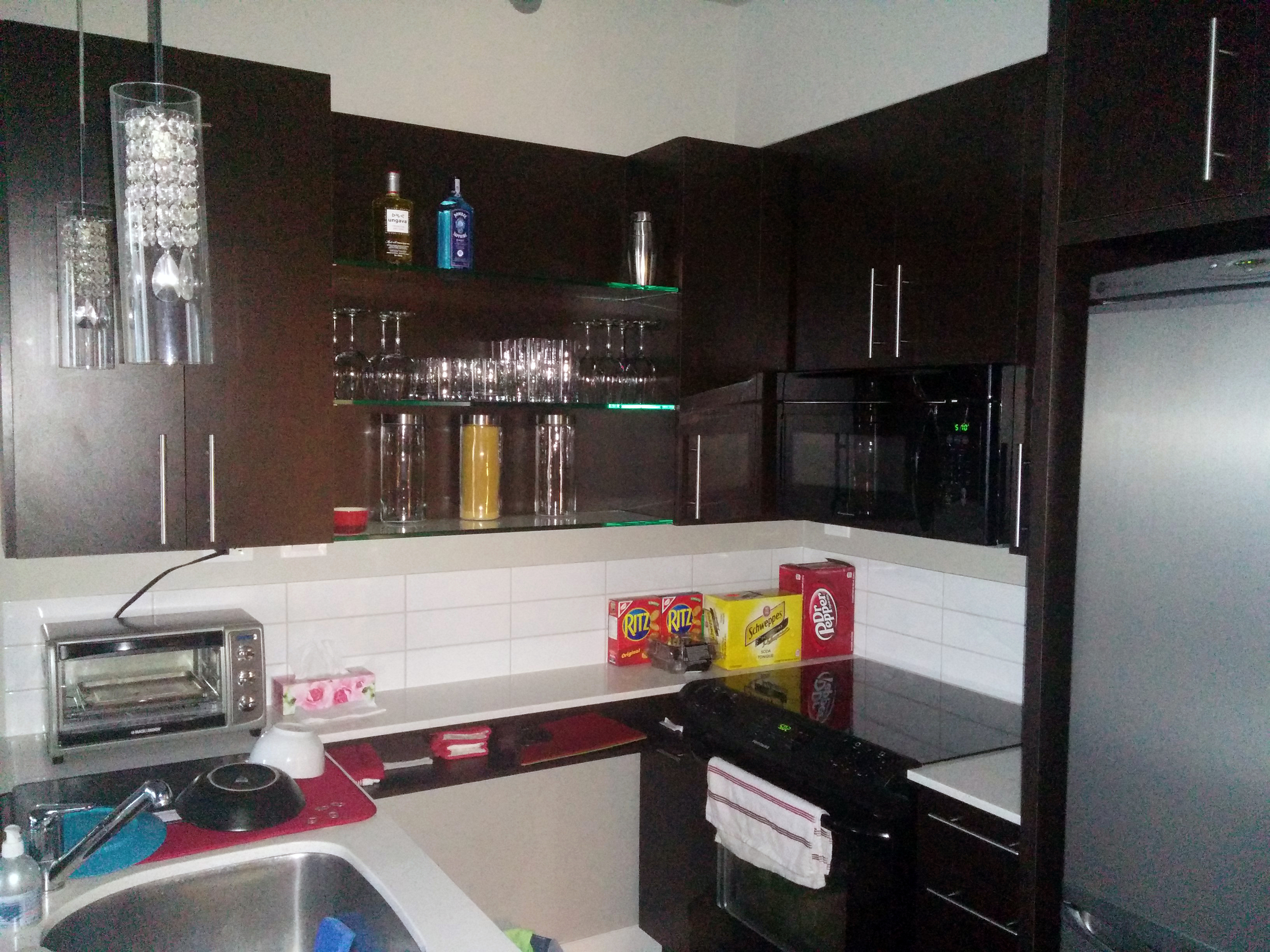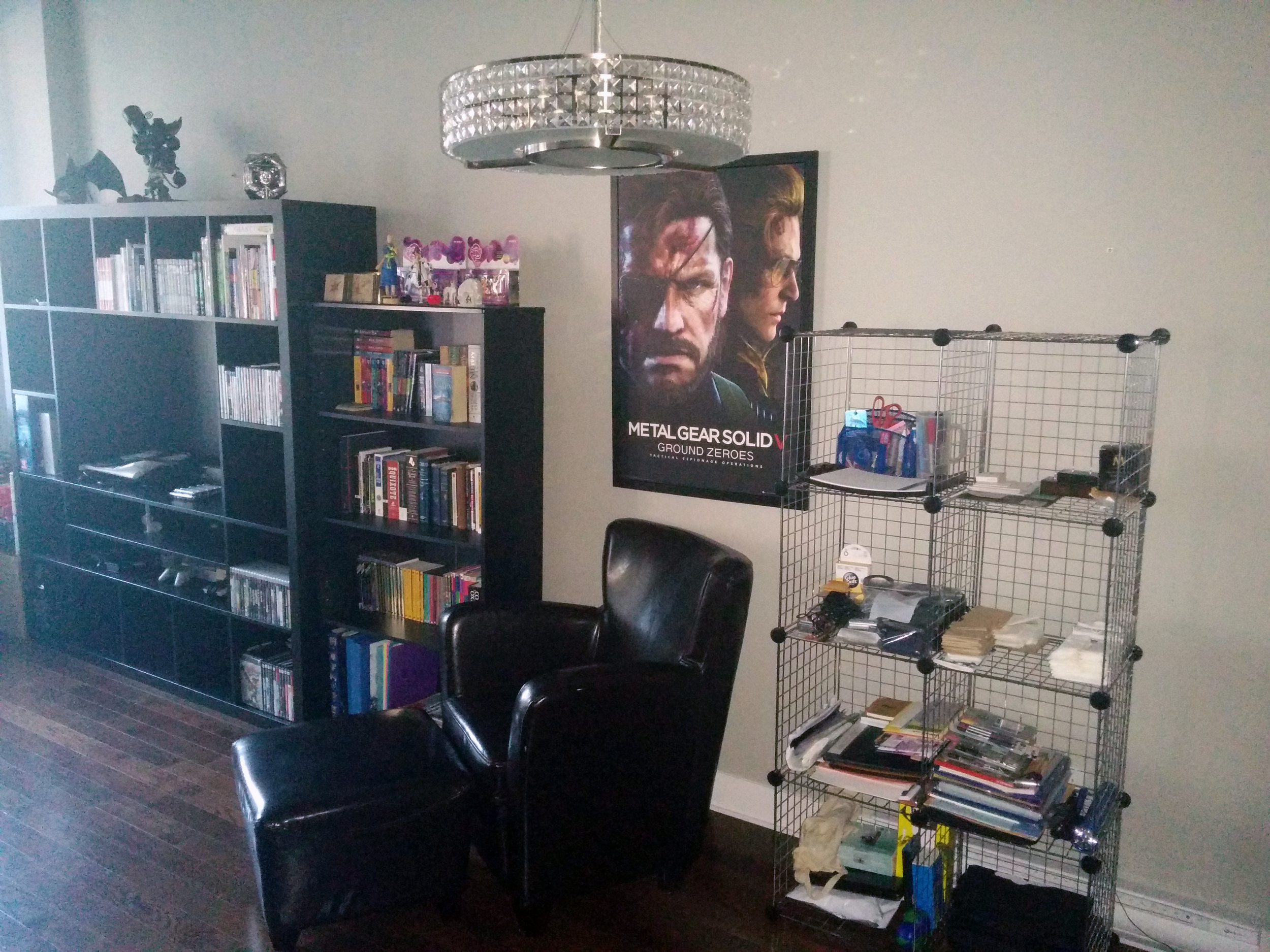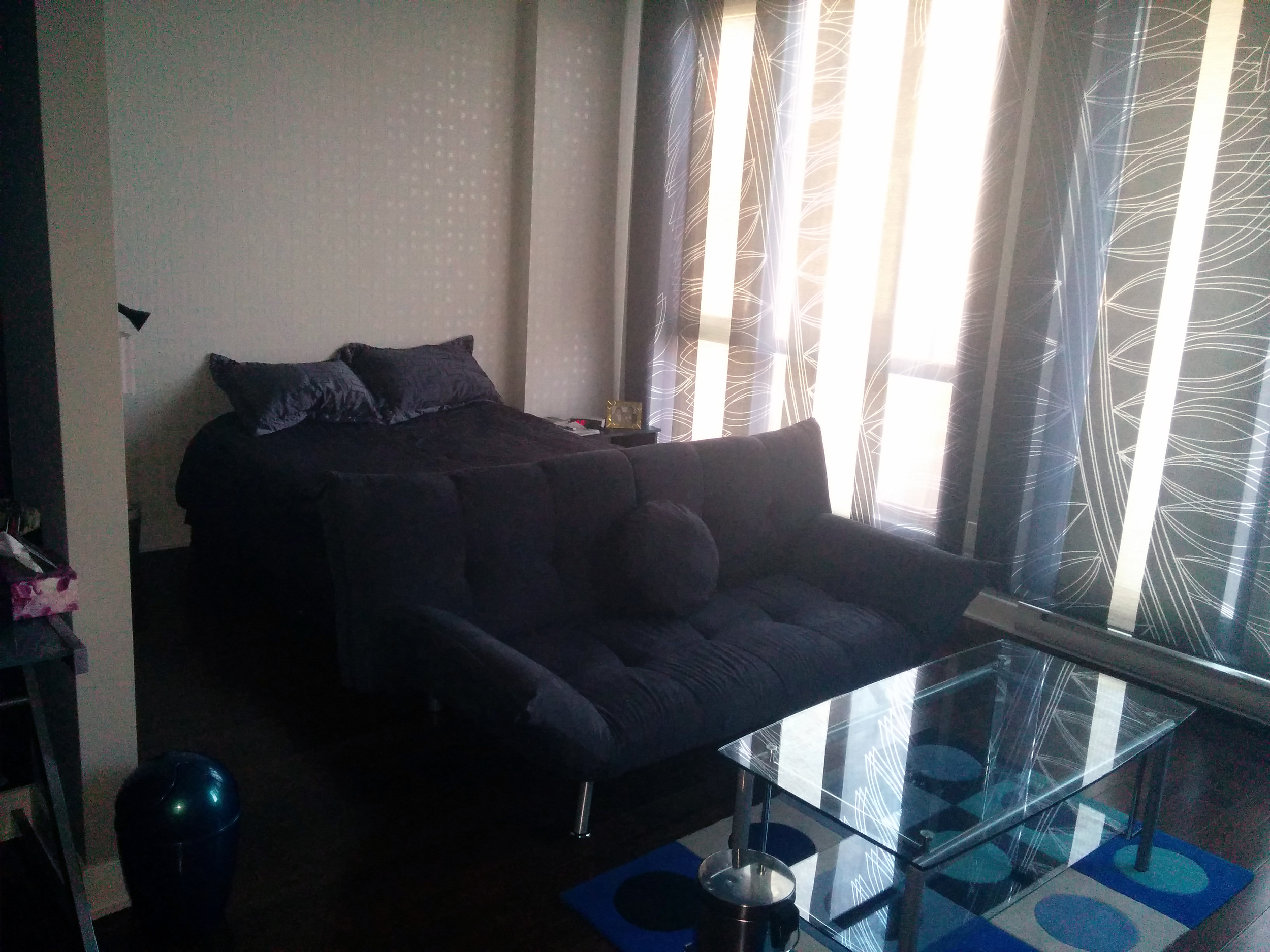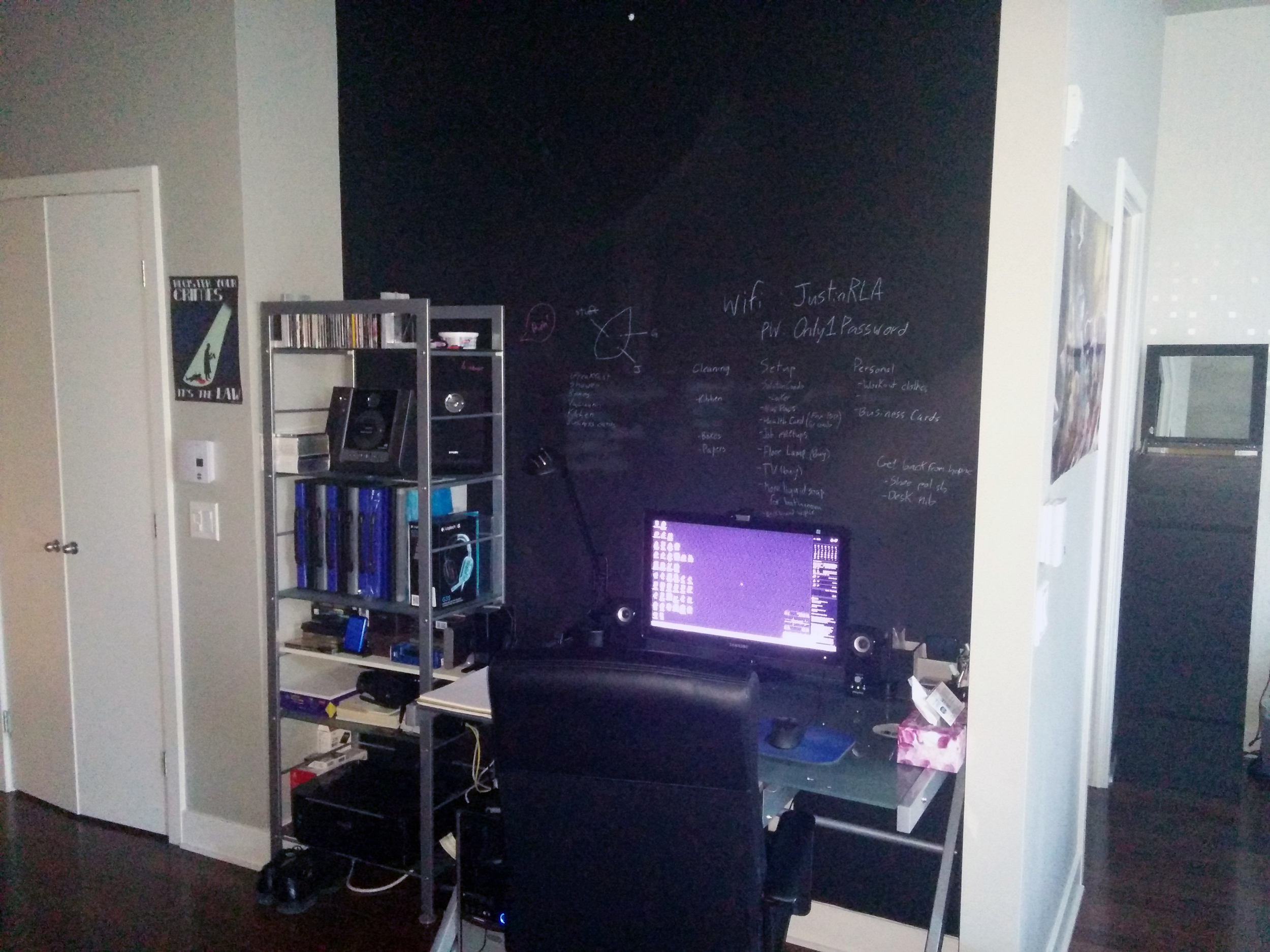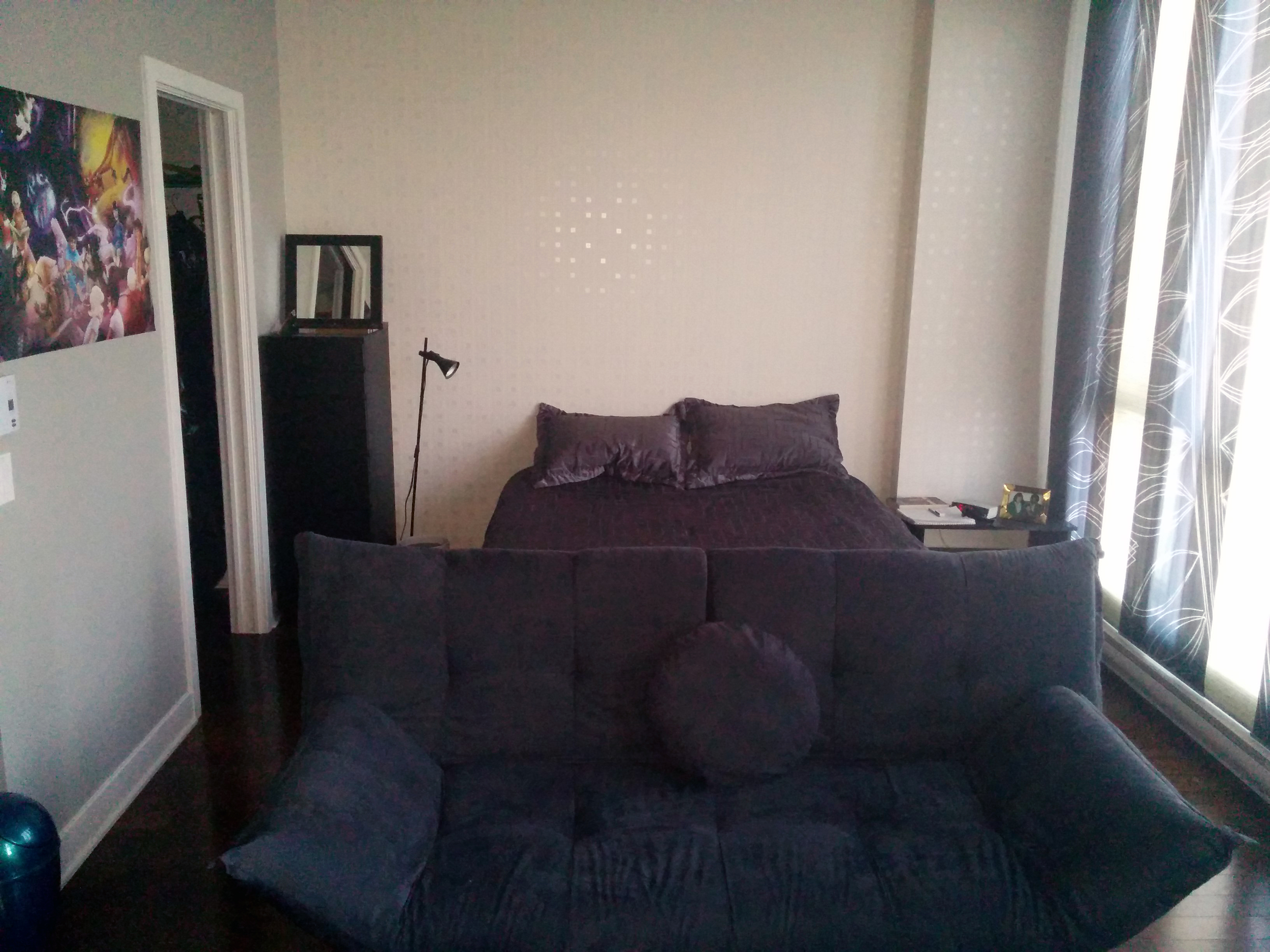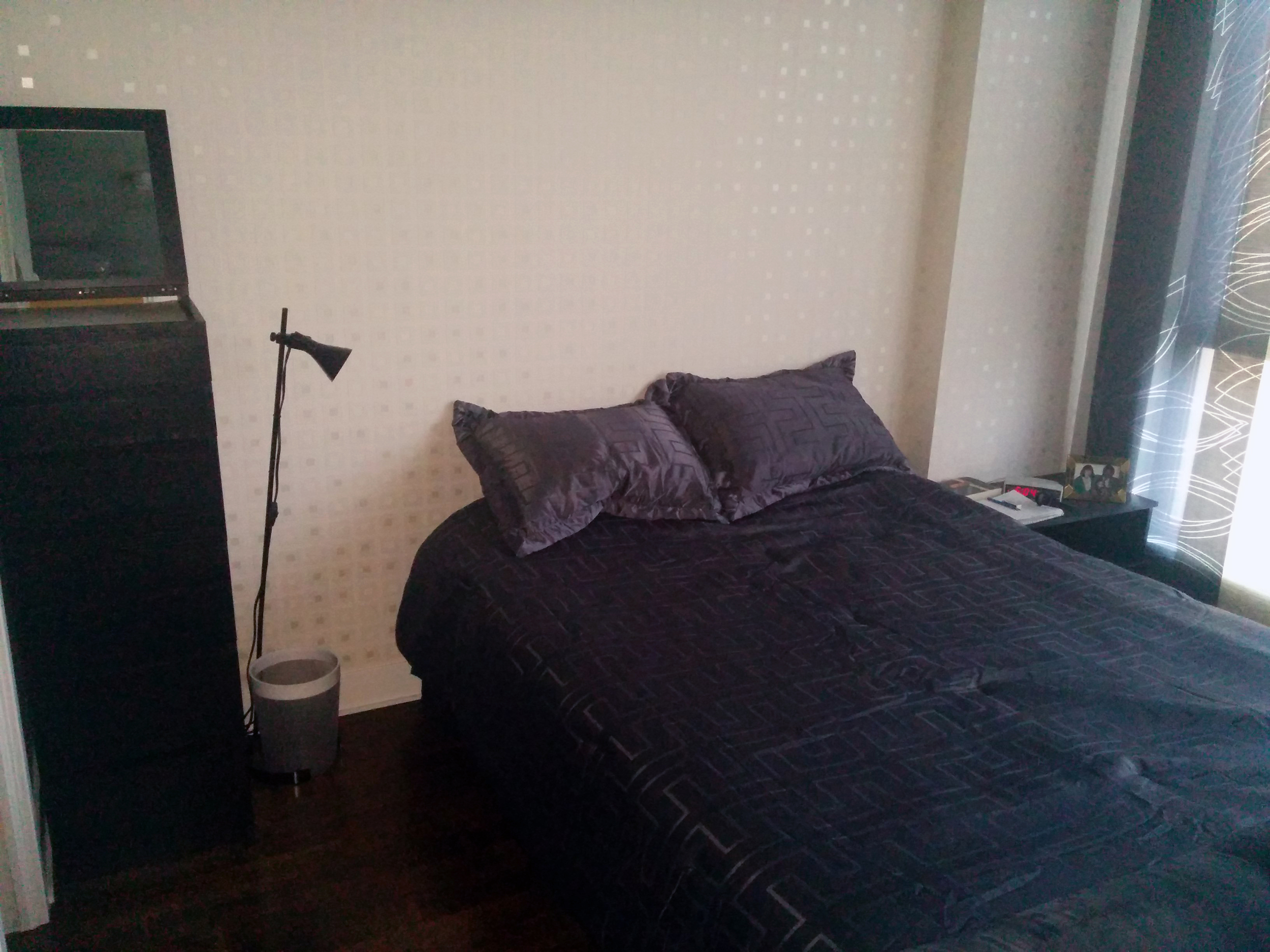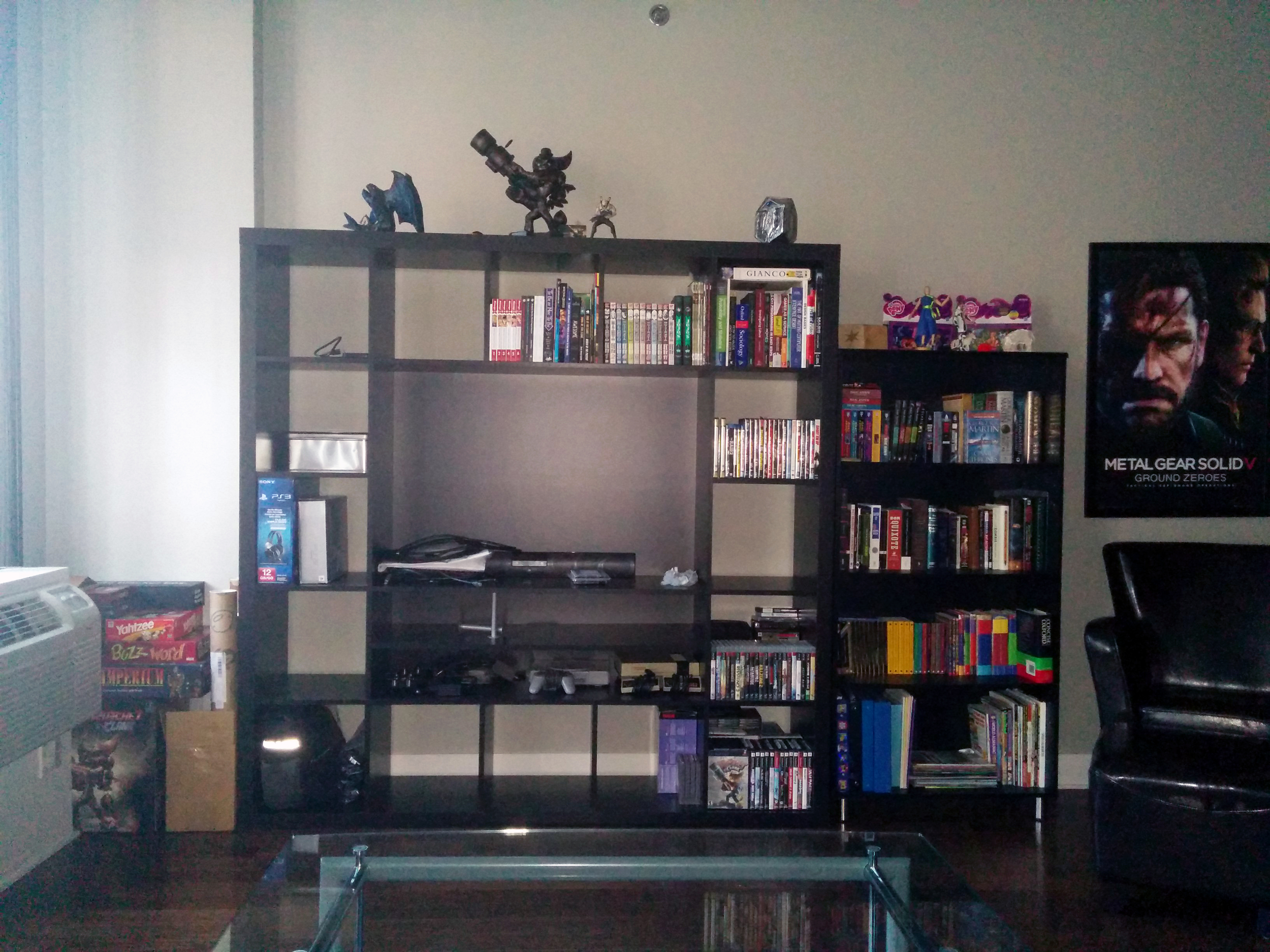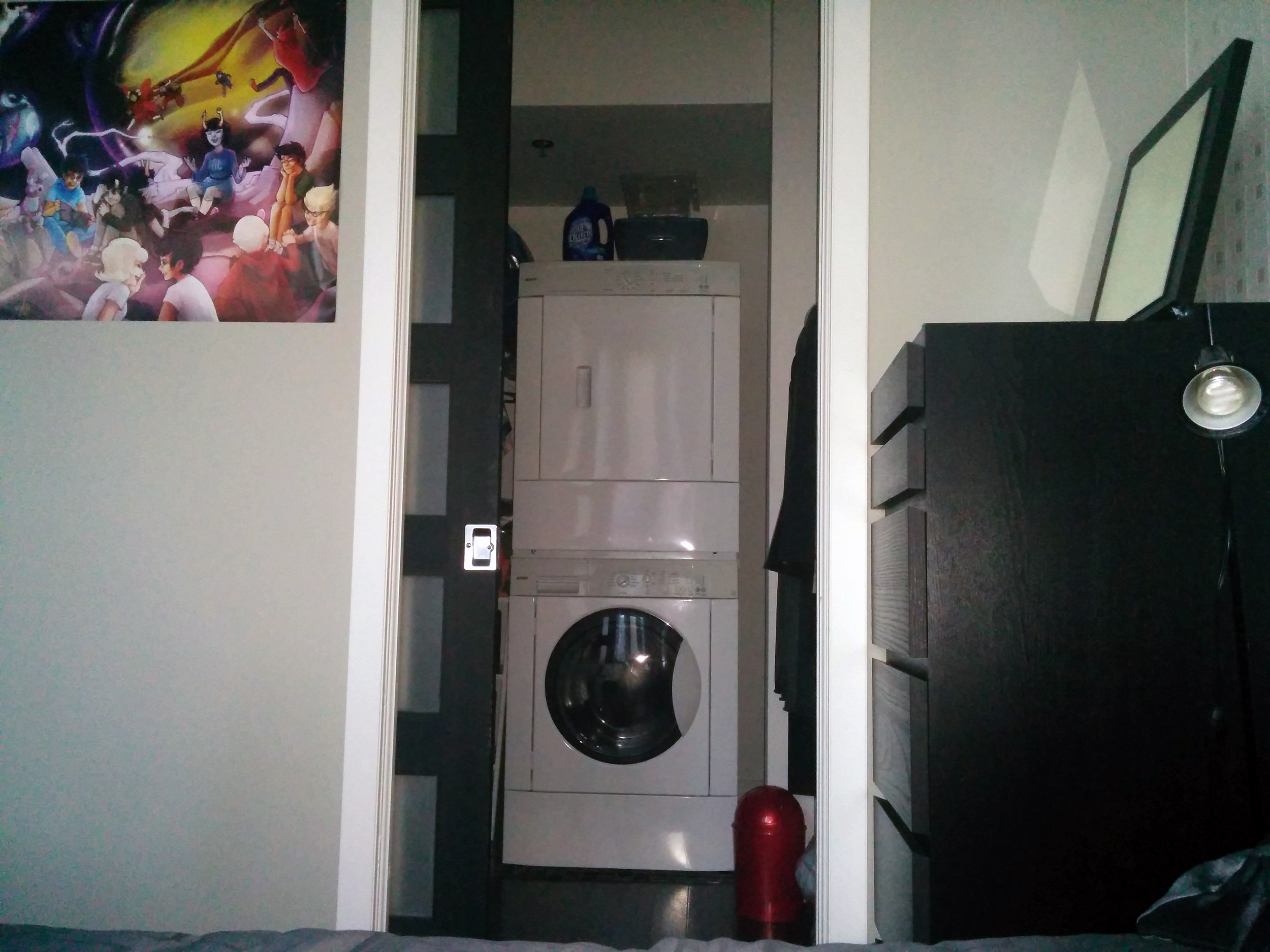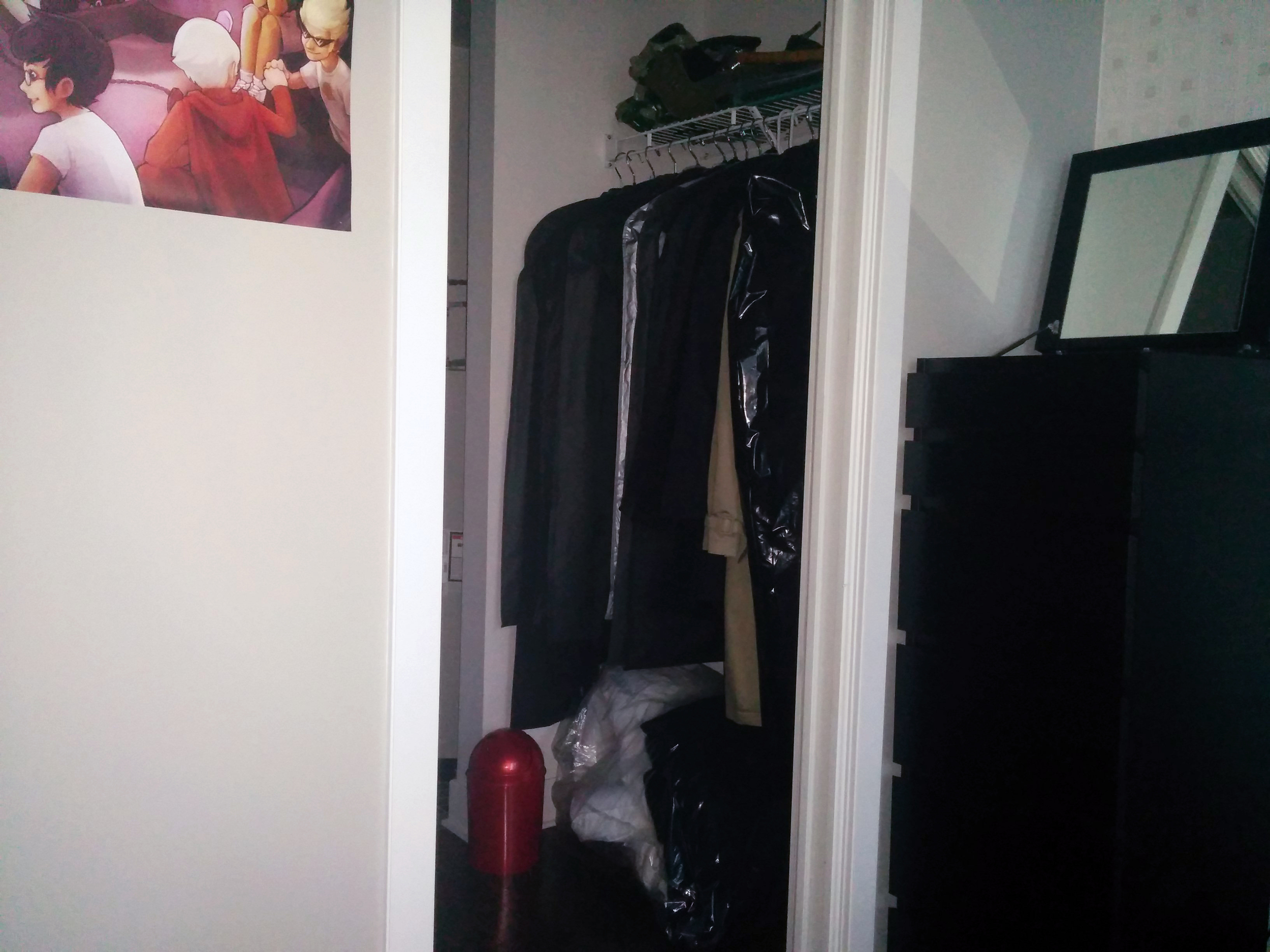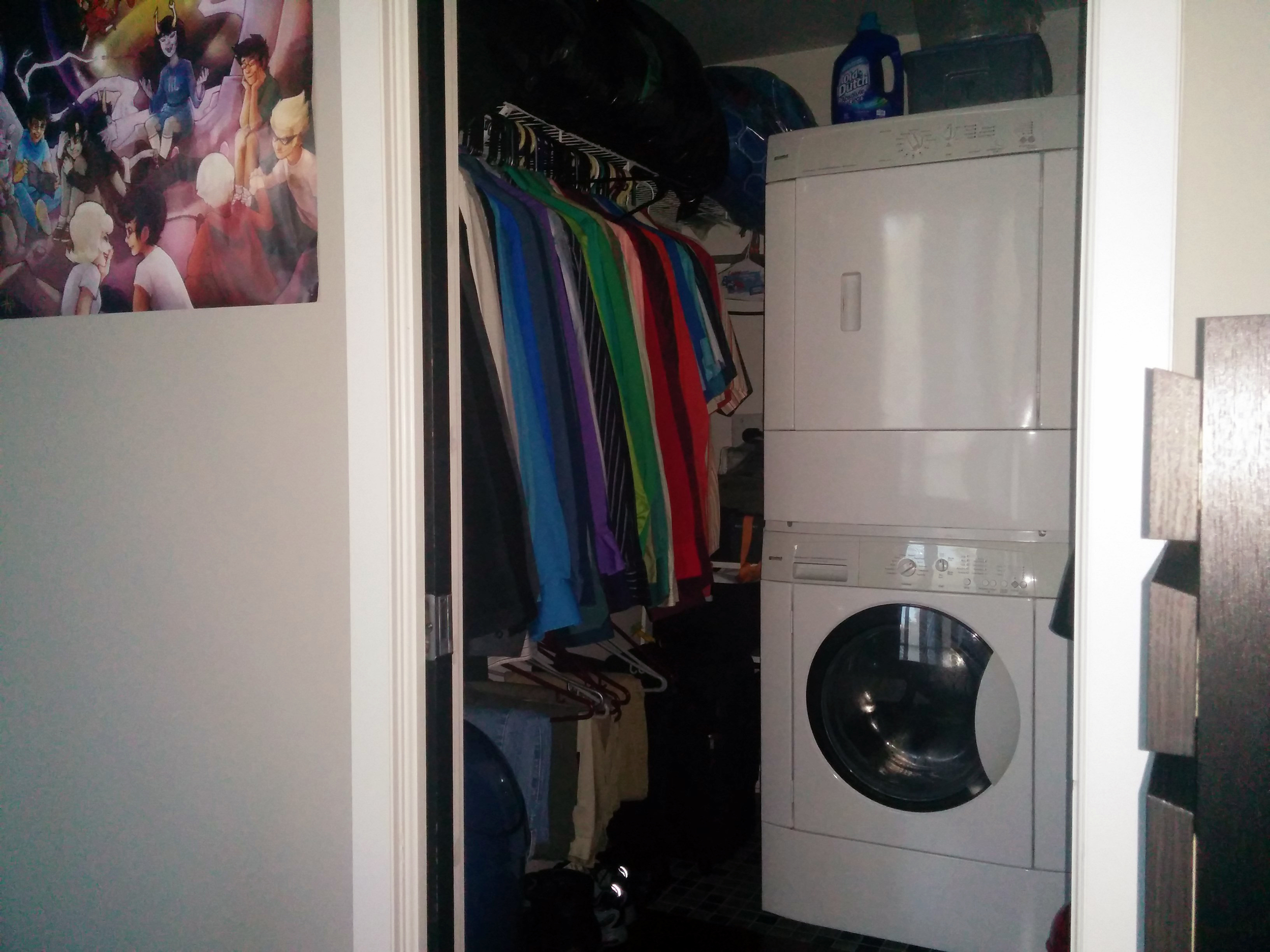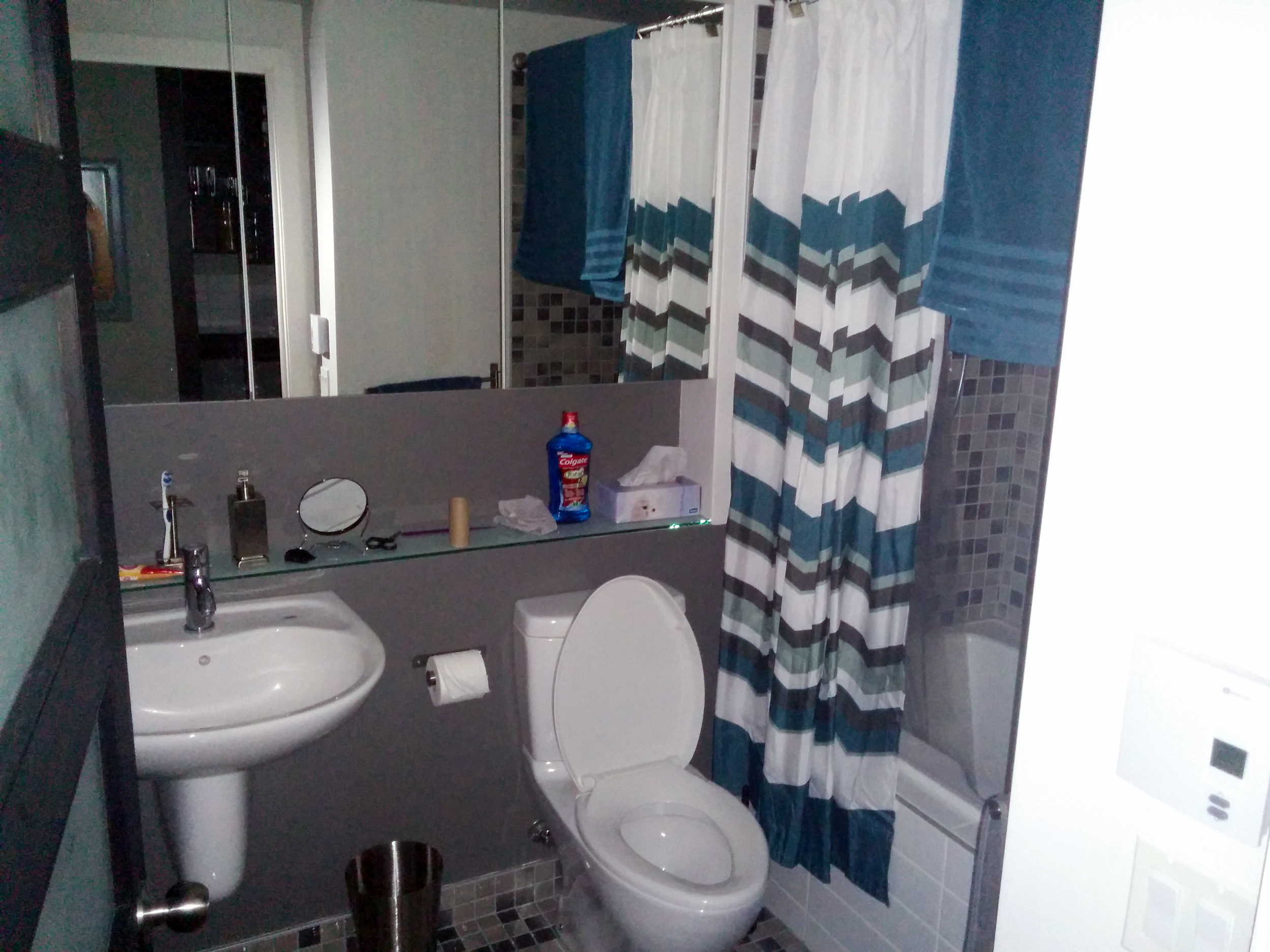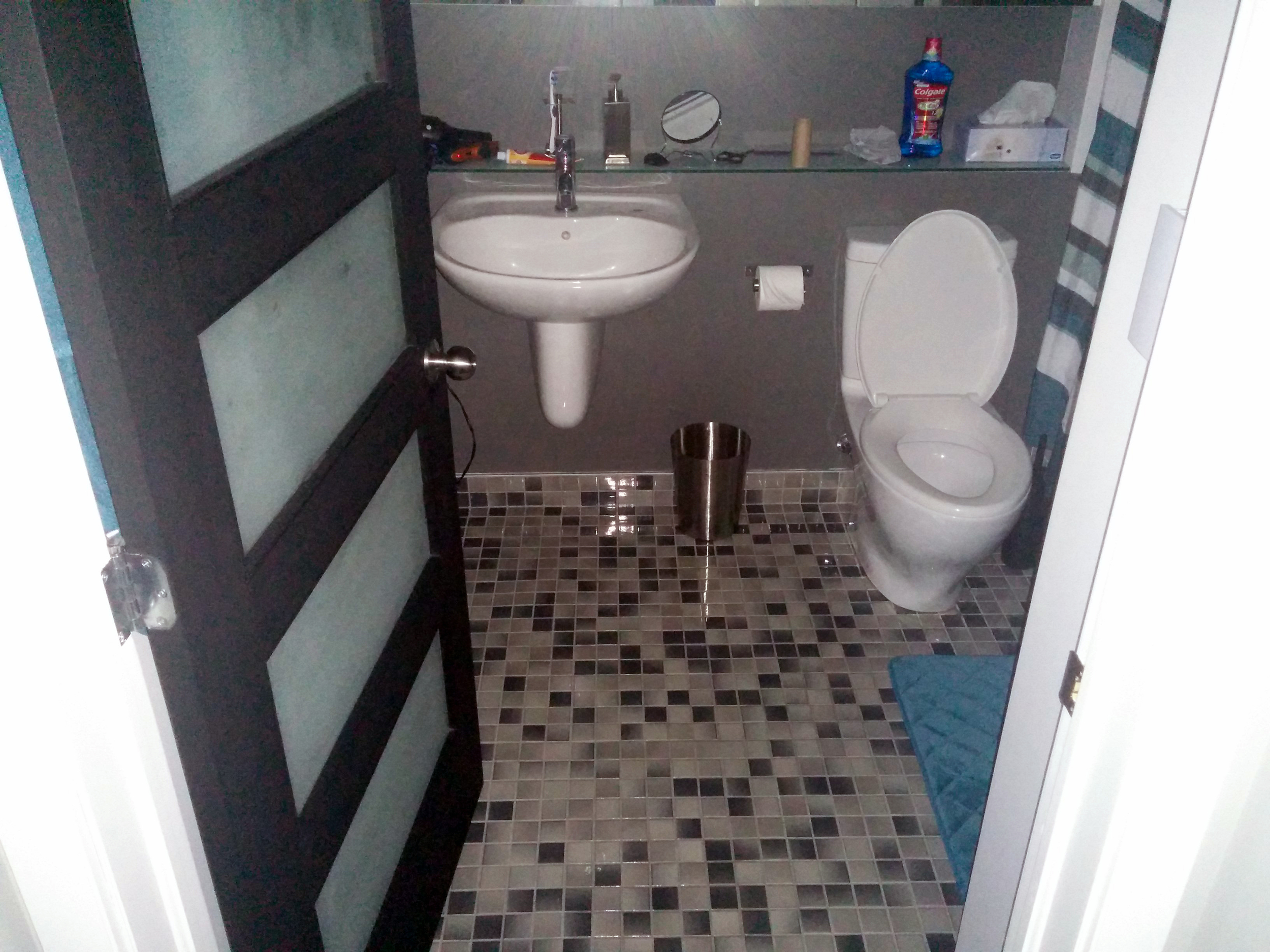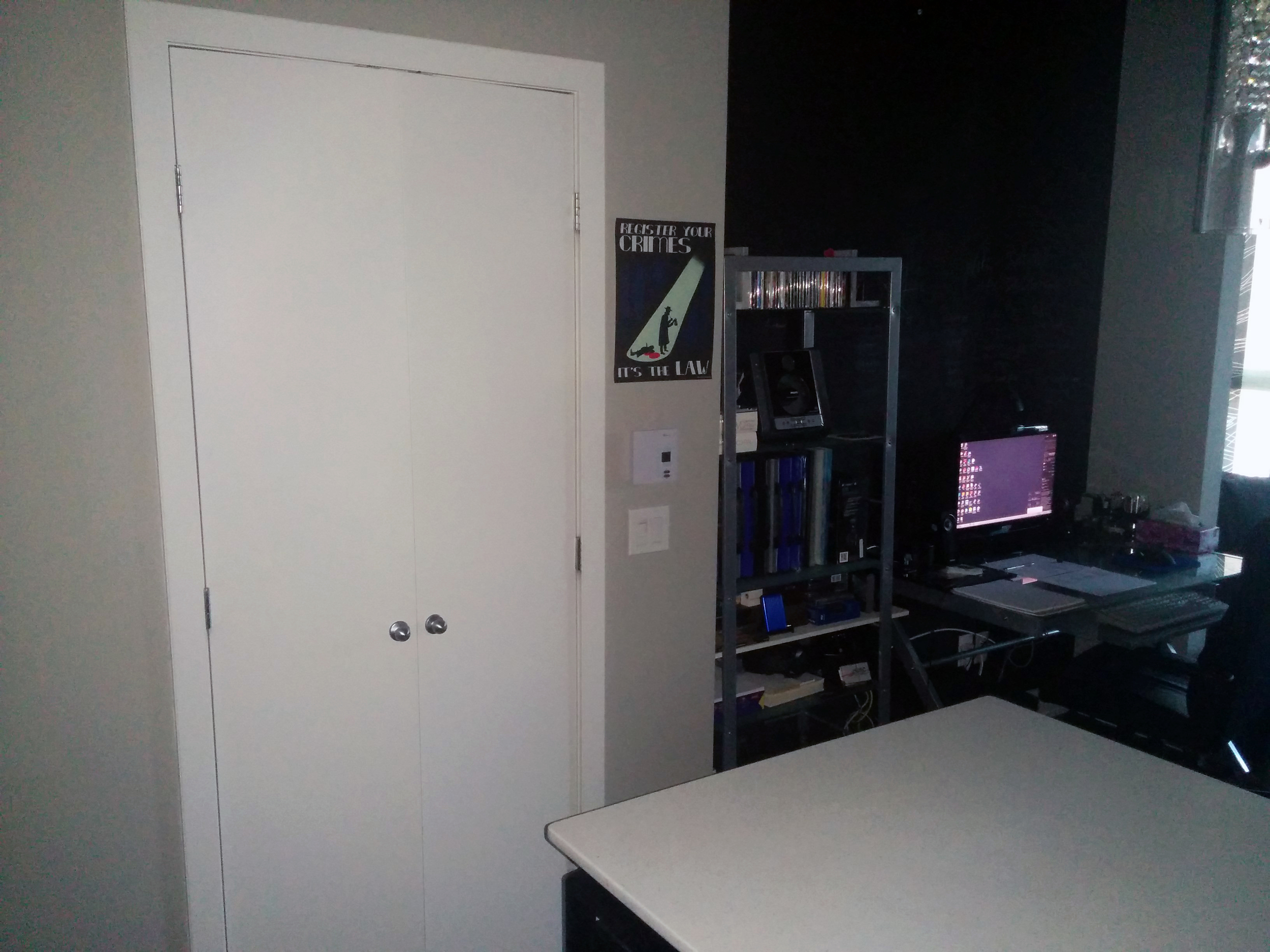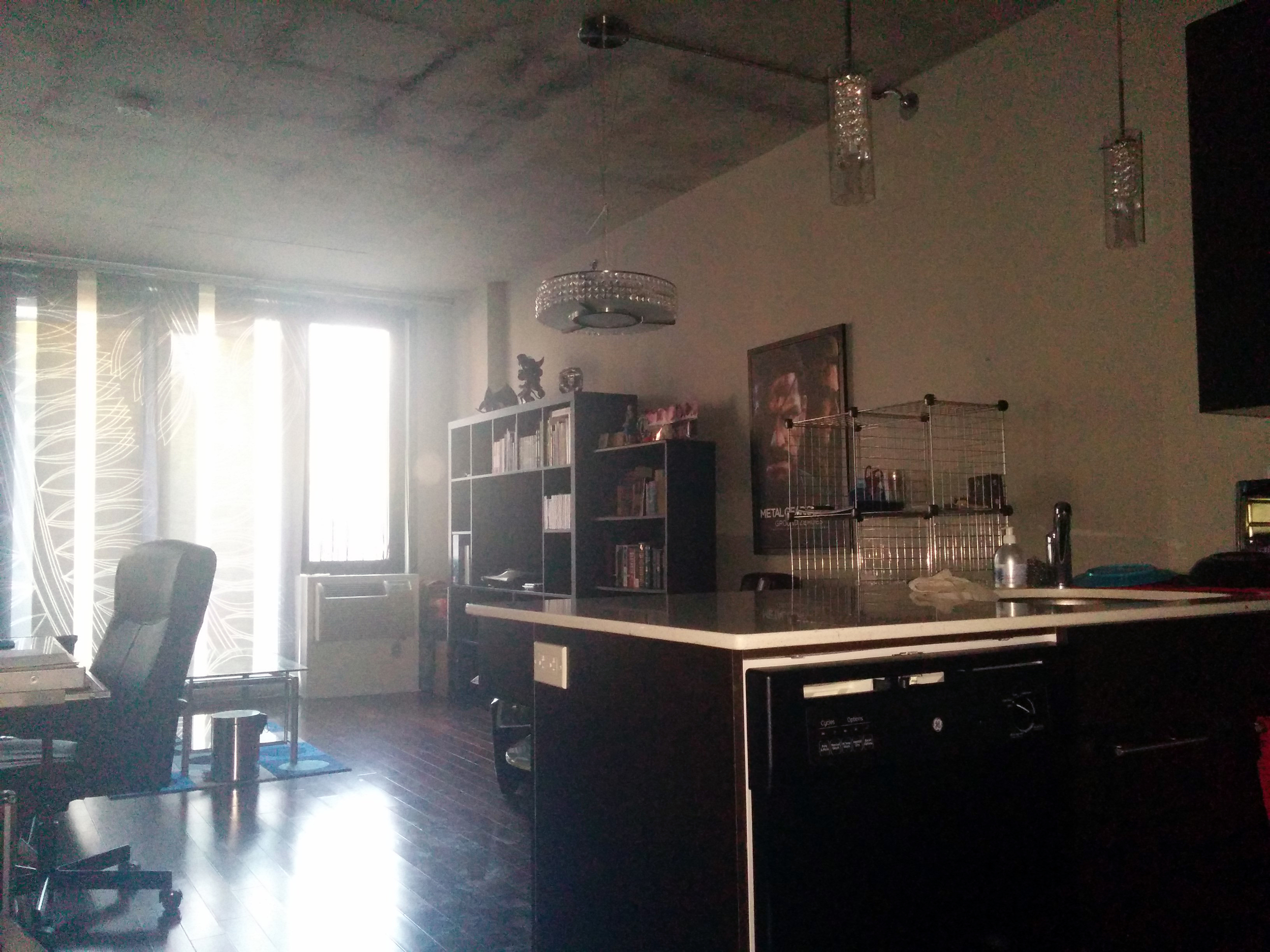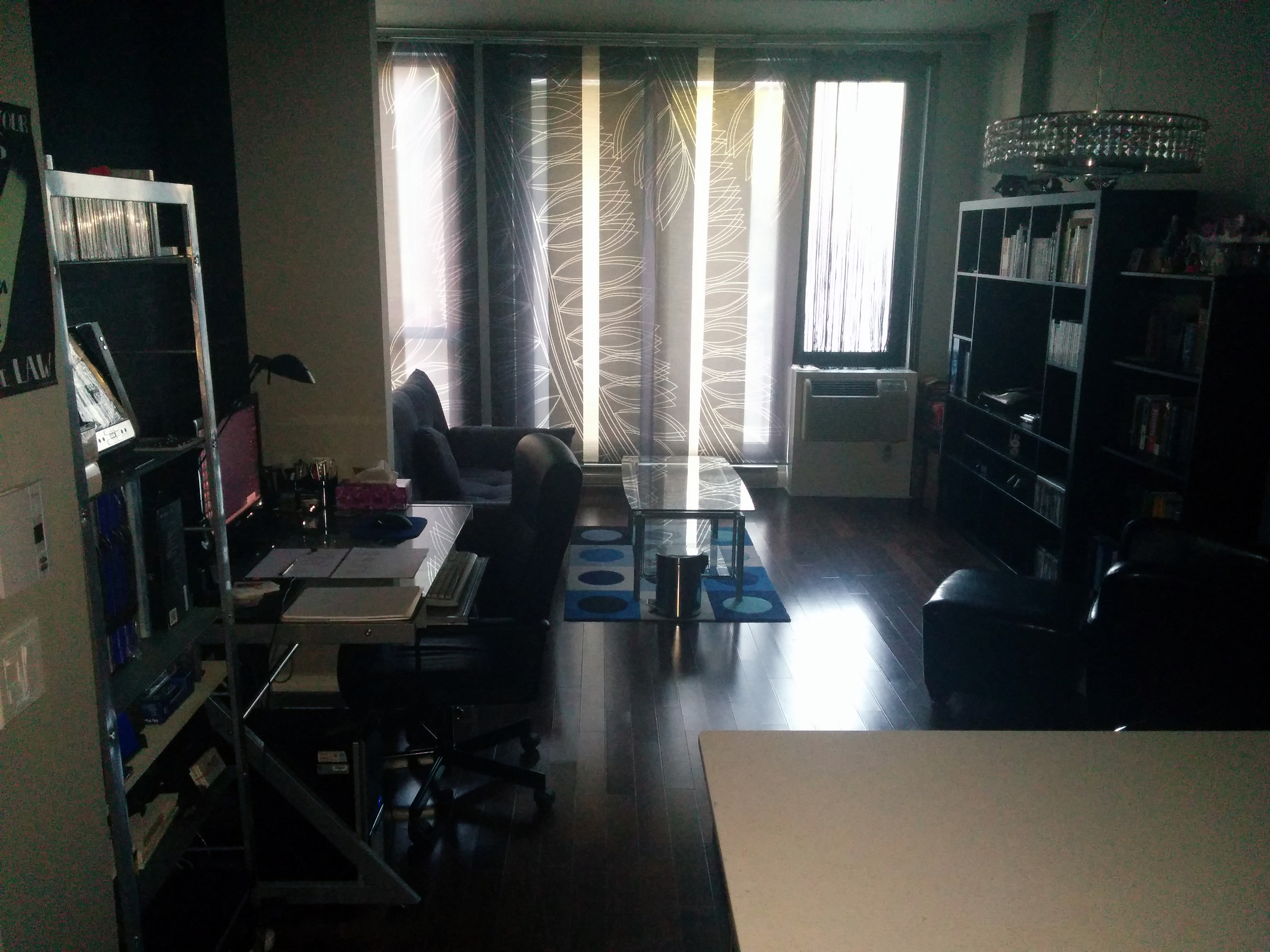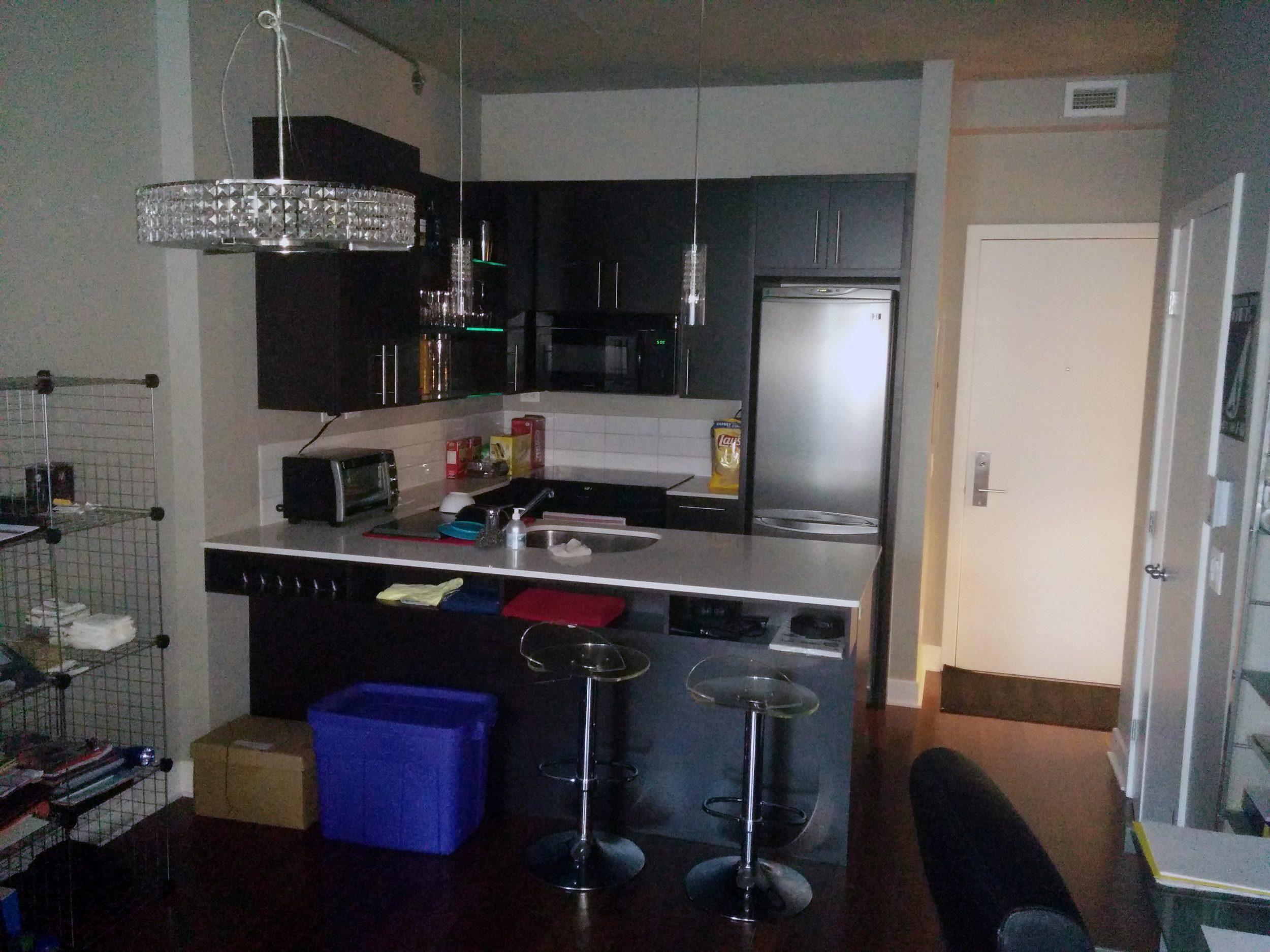It's been a long time since I've sat down to write one of these blog posts. Funny enough, even though I've posted a bit more frequently of late, but they weren't articles I was writing specifically for this blog. This one however is very much a product of my own motivation. Funny how events like these make for such good writing motivators.
Yesterday (at the time of me writing this), I attended a little event called Zeitgeist. It's an internal event at Ubisoft Montreal where the entire studio is invited to attend a presentation of our accomplishments and what's to come in the future. It's where we get to hear big announcements and see sneak previews of what the studio is working on. Naturally, I can't talk about what we saw in that presentation, but there were certainly some things there that I was pretty excited to hear about (and others where I'm uncertain, but leaning towards cautiously optimistic).
That’s not what I want to write about, however. What really got me excited though was the social experience that came along with it.
I've been working at UbiMTL since fall of 2020, and 2021's Zeitgeist was online (which most people have told me paled in comparison to the real thing). With the lockdown rules only recently lifted and a lot of people still favouring work from home (myself included), the office is rarely all that busy. This event though… Well let's just say this is the first time I've ever really had it impressed upon me just how huge Ubisoft Montreal actually is. It was genuinely shocking to see just how many people were there for the barbecue, drinks, and concert. People from every department and project, from all kinds of backgrounds. I don’t have the exact numbers, but it was definitely in the several hundreds, if not thousands.
For someone who places as big of an importance on networking as I do, this was a treasure trove. So, allow me to give you a play-by-play of my time at the event and what I did there, and highlight the value of good networking.
Oh and to be clear, when I say networking, I mean more than just exchanging business cards. I'm talking about the whole social experience of building connections with other people. Making business contacts is networking, but making friends is also networking. In my definition, networking is about building positive relationships with people, no matter what those relationships are. The benefits to building those relationships are broad, and appreciating that is key to taking full advantage of your network.
Afternoon
At first, I spent most of the party with some of my friends. These are people I knew back when I worked at Gameloft that also happen to work at Ubisoft now (this isn’t unusual; despite its actual size, it's a surprisingly small industry). We got some food and drinks to start things off. It was a comfortable start to get myself in the social spirit. Even if there's plenty of opportunities to meet new people, it's important to maintain your existing friendships as well. After all, tried and true comrades are the ones who will do everything they can to help you when you need it most. There's also nothing for you to prove to them, so you can relax, be yourself, and have fun. Having fun is essential to living a healthy life, so don't forget to do it! You’d be surprised how many people do.
As we were together, we ran into other former associates. Most were people who also used to work at Gameloft, but that I didn't keep as closely in touch with. We shared pleasantries and also talked about what we're up to these days. It's never a bad idea to say hi to former associates (unless there's some baggage there that is best left alone; not engaging in toxic relationships is just as important as engaging in healthy ones). In this particular case, these reconnections had a bonus payoff. One of the guys I had worked with previously shared my concerns about some workflow issues that have been causing issues for our team (and me especially), and as it so happened, he's going to be moving to the team that handles that workflow. I know him to have a similar philosophy to myself when it comes to having fast and adaptable solutions through good tools, so I know that he would be a good ally to have. I shared the fact that we were having ongoing discussions with the team he was joining, and he asked that we add him to that conversation so that he can help us drive the initiative. There was no reservation about it because even though we aren't especially close, we do have a good past relationship built on trust and mutual respect. This conversation would have been much less likely if I didn't have that relationship. Me from 4 years ago just made my life today a lot easier!
After that, I spotted the creative director for Siege. I made a point to say hi and congratulate him on his part in representing our team at the presentation. Some people might call that brown nosing, but those people are being silly. Commending people for good work is a good thing to do no matter who they are. Your positivity not only makes their day a bit better, but also reflects well on you. If they happen to be higher up in the ladder, then all the better. Regardless of that, Alex Karpazis is just a really chill and smart guy. I'd want to be his friend regardless of his job, and setting aside any notion of politics, I’m really happy that he’s our new creative director for the game.
Storm
My next stop after the old friends and acquaintances was my new friends. I ran into the programmer I work most closely with these days and we shared a few drinks and chatted casually. I've been fortunate to have pretty capable teammates, and this guy is no exception. I got to learn more about him and we had a good time. We even helped each other out when the park was suddenly hit with an aggressive blast of heavy rain (he had an umbrella, and I had a free pair of hands). It should be pretty obvious why building a good relationship with the people you work with is valuable. We're close enough that we can talk openly about our work and what we can do to make each other's lives easier, and that's good for us as well as the game.
Another fun thing happened around this point in the evening. While looking for some of our other teammates, we ran into my best buddy from Gameloft (who I was with during at the start of the event), as well as another former Gameloft employee who left before I joined, but with whom I shared many mutual friends (there really are a lot of former Gameloft employees at Ubisoft; sometimes that's just how the industry goes). We ended up playing hacky sack (I absolutely suck at it, for the record) and hung out. The magical thing here is that my new work buddy and my old work buddy started chatting and seem to have built up a rapport themselves (incidentally, their relationships with me work-wise are both very similar). One of the fun things about networking is that sometimes you end up being a bridge for other people to network as well, and as far as I'm concerned that's all the better (this theme will come up again later).
Night
A little while later I ran into a few other people from the programming side. I did some commiserating with one guy over the lack of a designer on their team. I helped their team out before to pick up the slack when their old designer left, but it's clear they need a dedicated replacement. I may have inadvertently made myself a candidate during that conversation, though the one thing I could definitely offer was that as our team works on improving our structure and workflow, we will surely be able to share some of our experience to help them with theirs. Networking is not just about what I can get from others, but also what I can give to them. I want their team to succeed too, after all!
I then ran into one of the programming leads, who happens to be in charge of one of the features I'm working on (I can't say what that feature is, but I can say that people in the Siege community have been asking for it for years). He’s someone I've been getting along with quite well, and whom I respect a lot. It’s a relationship I’m more than happy to continue building on. We and a few others got into a longer chat about some interesting topics, mostly relating to narratives that challenge player perception. The original Tom Clancy Rainbow books, Spec-Ops: The Line, and the infamous “No Russian” mission were referenced, to give you an idea of where we were at subject-wise. Quick disclaimer though, none of this had to do with what's actually being worked on at the studio; we were talking about hypotheticals of what we'd like to see. Nevertheless, the conversation was both fun and informative. I learned about some of the aspirations people have for the R6 franchise, and also got to show off my designer brain (I ended up turning a controversial topic into a potentially interesting new game mode idea). I adore intellectually stimulating conversations like those. they really fire up my neurons and get me inspired. In my experience, you can get more new ideas from one engaging conversation than you can from days of sitting alone contemplating. Maybe it's just me, but there's something about the act of communication that just jogs my design mind.
As the day turned into night, I mostly cycled through the groups I had acquainted myself with, catching up with people here and there. I did get to see some interesting stuff about a really neat prototype that I didn't know existed until Zeitgeist. Turns out it's being made by a six-man team that used to help us out back when I was at Gameloft, including the very first guy I worked with there (I have a story about that which I’d like to write about one day, but today is not that day). I also got to see that same team interact with leadership on the Siege team. Yet another relationship that might bear fruit one day… Oh, there was also a concert and a bit of dancing, but once again, my feet are not good at things that are not walking and quickly traversing stairs.
I was presented with an RPG-style choice at the end of the night. My old friends were going to go to our former watering hole for drinks and casual catch-up. However, I was also invited by the programming lead to go to a karaoke party. So, do I take the safe option and unwind with the old buddies, or do I go with the group of strangers and make some new friends?
Afterparty
It was actually pretty tough for me to decide, but I ended up going with the new group. Quite simply, I won't often get opportunities to spend time with the gameplay programmers, and given my ambitions and desire to continue bridging gaps between teams, it seemed like a golden opportunity. I also low-key really like doing karaoke, even though I almost never do so publicly. Amusingly enough, my decision resulted in my old friends joining me, so win-win!
One additional anecdote I'll slip in here is that while heading down, I chatted with a game dev veteran from the studio's tool team (my programmer friend and I helped him out earlier during the heavy rainfall by sharing our umbrella, so we were somewhat acquainted). He had worked on Siege way back when it first started, and helped set up the destructible environment tech that our game is famous for. He also has worked for 27 years (I think that was the number) in the industry, including on at least a few games I played as a kid. It's crazy to think that there are people that have been working in the industry for as long as I've been alive… Oh, and when I asked him about his war stories, he hit me with one that I never expected: turns out he worked on the infamous Duke Nukem Forever! I learned some interesting things about the conditions under which that game was finally finished and released (spoiler: they were bad). I adore getting weird little knowledge nuggets like that. The game industry is full of them, if you bother to look around.
In the end, the karaoke bar was overcapacity, so we went to the adjacent pub for some drinks. I got to have some deep chats about Siege and the teams that work on it. One of my old friends (from that six-man prototype team) joined us and basically fell in love with our gameplay programming team (once more, a possibly advantageous future relationship in the making). I got to see my best friend and mentor drunker than I've ever seen him (I helped him to his Uber when the night was done; love you Chris). Then I rounded the night by having a good chat with another programming lead that I was less acquainted with. We ended up getting pretty deep into things regarding the team as well as my own aspirations. It may very well end up being a relationship that could greatly help me in the future.
Conclusion
The moral of the story is that the greatest magic of industry events (or any social gathering really) is that they bring people together. Humans are social creatures, and making games is a collaborative experience. The more we connect with each other, the more resources we have at our disposal, be it to accomplish tasks, to make new partnerships, to share knowledge, or just to have fun. Every relationship you make can have value, even if in some cases it can take years for that value to truly manifest. One of the greatest things I learned to do when I started pursuing a career in games was to learn to network, despite being very introverted and shy. It's made me a better designer, and I'd argue that it's made me a better person as well. I've learned a lot from other people, and it's from that knowledge that I've gotten to where I am today. Those same people have also helped me at many points in my life to accomplish things I simply couldn't on my own. I cherish those experiences, even the minor ones. It's for that reason that I cannot recommend enough that you go out there and socialise with people whenever you can. If more people put more effort into interacting with each other, I'm certain that the world would be a better place.
Bonus: Epilogue
There was one last fun little part to this story. So remember how my programmer friend had an umbrella during the sudden storm? Well, I also had an umbrella (because I checked the forecast that morning), but I had foolishly left it at my desk. I didn't particularly want to have to come back next week to get it, so instead I figured I'd swing by the office to grab it before going home that night.
The only thing is that by the time we had left the pub, it was around 4 in the morning. The metro that would take me home stopped hours ago, and an Uber would be pretty pricey (not to mention my phone was almost dead). However, it also just so happens that the trains in Montreal start up again at 5:30am. Therefore, what I did was enter the studio, go to my desk, and chill for an hour (I actually did a bit of work and replied to a couple LinkedIn messages from aspiring designers asking for advice). I also ended up wandering around the office and checking out all the floors and rooms. There's something special about exploring a place when no one is around. I got to check out all the cool figurines people had on their desks and see where all the other teams worked (I didn't touch anything though, just to be safe). If you ever happen to get the chance to explore an empty place in the dead of night, I recommend it (so long as it's safe of course). It's a really cool experience.










